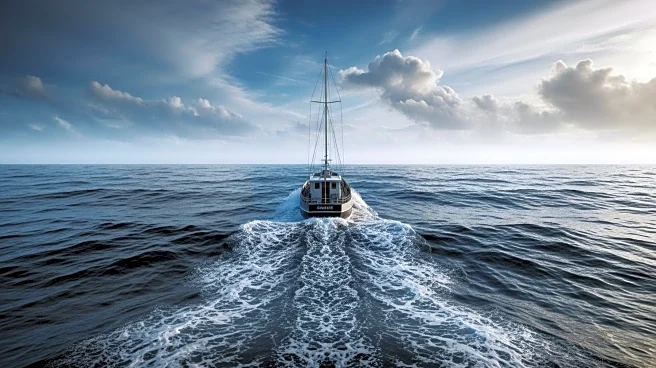What's Happening?
The Global Sumud Flotilla, aiming to break Israel's naval blockade of Gaza, is currently near Crete, planning its next steps. The flotilla consists of several ships carrying symbolic humanitarian aid and activists. Israel has called on the flotilla to dock at Ashkelon and transfer the aid to Israeli officials. The flotilla's organizers report that multiple drones targeted some of their boats off the coast of Greece, raising concerns about the safety and success of their mission.
Why It's Important?
The flotilla's mission highlights ongoing tensions surrounding the Israeli blockade of Gaza, which has significant humanitarian implications. The blockade restricts the movement of goods and people, contributing to economic hardship and limited access to essential resources in Gaza. The flotilla's actions draw international attention to these issues, potentially influencing public opinion and diplomatic efforts to address the blockade. The situation underscores the complexities of international maritime law and the challenges of humanitarian activism in conflict zones.
What's Next?
The flotilla organizers must decide whether to proceed towards Gaza or comply with Israel's request to dock at Ashkelon. Their decision could impact international perceptions of the blockade and influence diplomatic discussions. The Israeli government may face increased pressure to justify its blockade policy and address humanitarian concerns. The flotilla's actions could inspire similar initiatives, prompting further international activism and advocacy for Gaza.
Beyond the Headlines
The flotilla's mission raises questions about the effectiveness and ethics of humanitarian activism in conflict zones. It highlights the role of non-state actors in international diplomacy and the potential for grassroots movements to influence policy. The situation may also affect cultural narratives surrounding the Israeli-Palestinian conflict, shaping media coverage and public discourse.











